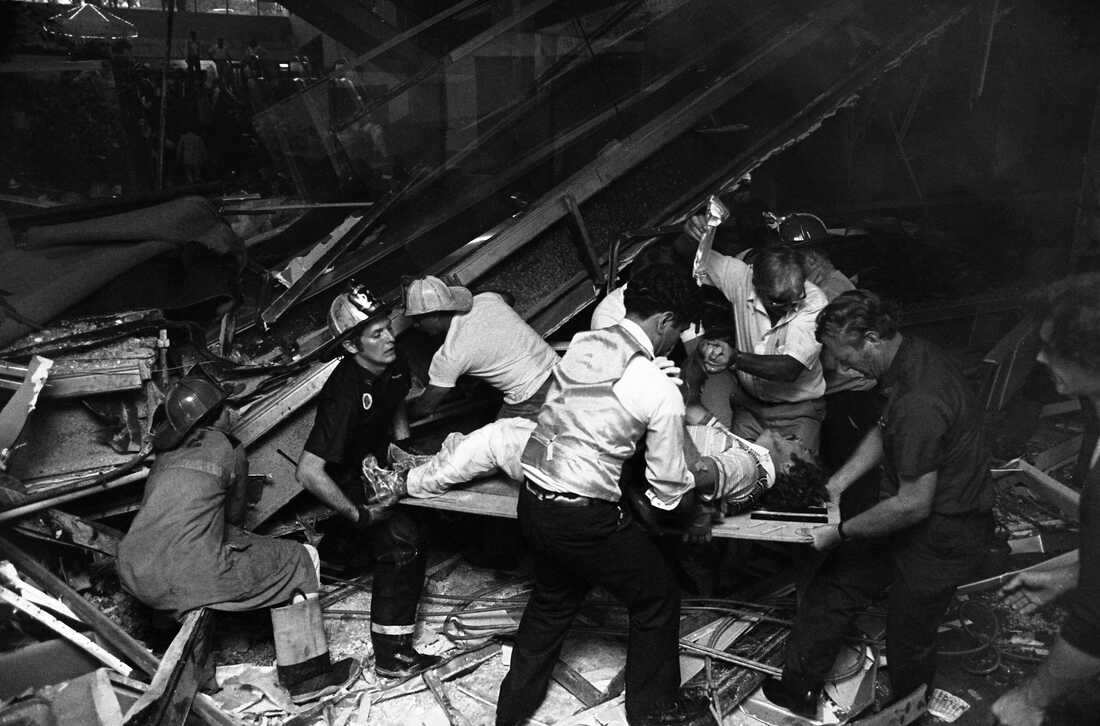
The untimely death of Led Zeppelin.
It’s 40 years since the biggest rock band in the world broke up, two months after the death of drummer John Bonham. The Zeppelin myth holds that the band wouldn’t go on without him, but others tell a darker tale. Mark Beaumont explores what really happened.

John Bonham threw his fourth quadruple vodka of the morning down his neck and took a single bite of a ham roll. He grinned at Led Zeppelin’s assistant Rex King, charged with getting one of rock’s most mercurial and hedonistic drummers to rehearsal in a fit state to play. “Breakfast,” he said.
It would be the last of his life. Back in the car en route to Berkshire’s Bray Studios on 24 September 1980, Bonham’s mood turned sour, hinting at a devastating split approaching far faster than anyone could have imagined. “As we drove to the rehearsal, he was not quite as happy as he could be,” Zeppelin singer Robert Plant said later, recalling the events that led up to the break-up of one of the biggest and most influential bands of the Seventies, 40 years ago on Friday (4 December). “He said, ‘I’ve had it with playing drums. Everybody plays better than me.’ We were driving in the car and he pulled off the sun visor and threw it out the window as he was talking. He said, ‘I’ll tell you what, when we get to the rehearsal, you play the drums and I’ll sing.
At rehearsal, for the band’s first US tour since 1977, in support of their eighth album In Through the Out Door, Bonham – Bonzo to his friends – never slowed down. Having collapsed onstage during the third song at a show in Nuremberg a few months earlier (the band claimed he had “overeaten”), his furious alcohol intake had made him prone to blackouts, and as he worked his way through a reported 40 units of vodka during the 12-hour rehearsal his playing began to deteriorate. “Bonzo had been getting a bit erratic,” said Zeppelin bassist John Paul Jones. “I can’t say he was in good shape, because he wasn’t. There were some good moments during the last rehearsals… but then he started on the vodka… I think he had been drinking because there were some problems in his personal life.
When the band retired to guitarist Jimmy Page’s home at the Old Mill House in Windsor for the night, Bonham passed out on a sofa at midnight and was put to bed by an assistant, lying on his side. The following day, when he hadn’t arrived for rehearsal by 1.45pm, Jones and Zeppelin’s tour manager Benji Lefevre went to check on him.
“We tried to wake him up,” Jones said. “It was terrible. Then I had to tell the other two… I had to break the news to Jimmy and Robert. It made me feel very angry – at the waste of him.
Bonham’s death from inhalation of vomit that night, aged just 32, didn’t just mark the tragic loss of one of rock history’s most celebrated drummers, famed for his incendiary 20-minute live solos and the bedrock of Led Zeppelin’s elemental power – “John Bonham played the drums like someone who didn’t know what was going to happen next, like he was teetering on the edge of a cliff,” said Dave Grohl – but also the demise of a band that would come to represent the cornerstone of both classic rock and heavy metal.

Leave a Reply